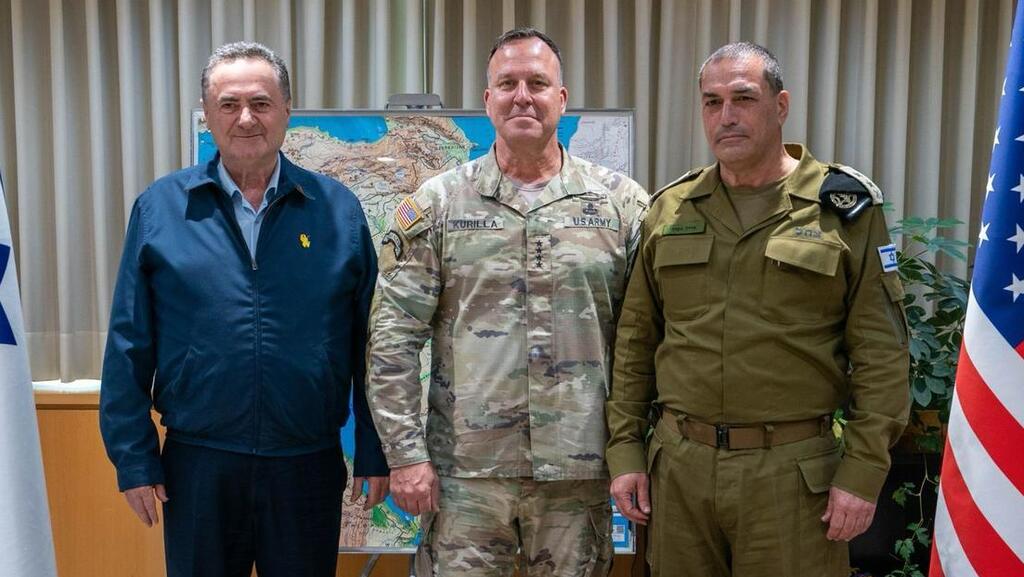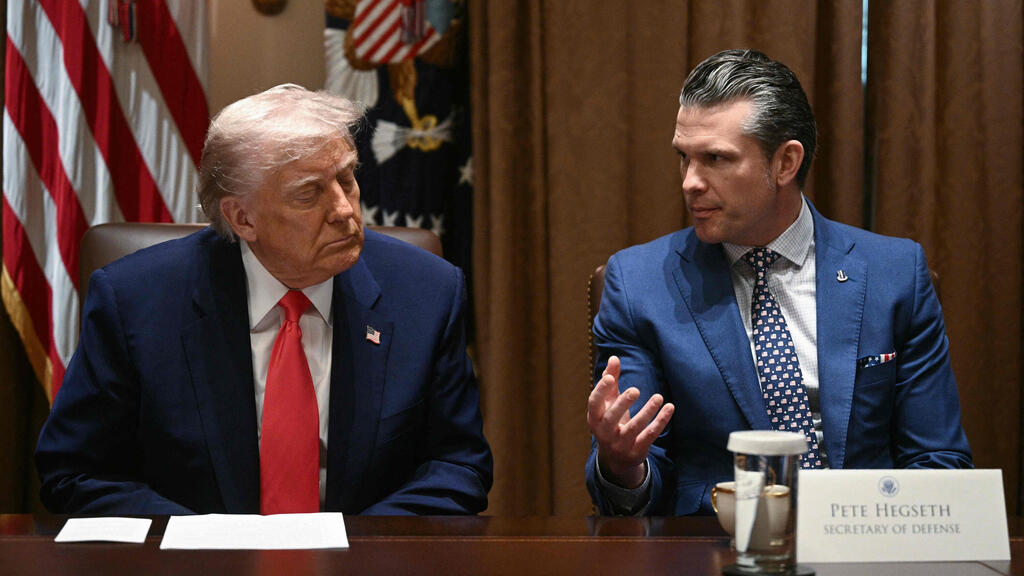U.S. officials told Politico that U.S. Central Command (CENTCOM) head Gen. Michael “Erik” Kurilla has emerged as one of the most influential figures shaping Pentagon strategy, particularly on policy toward Iran.
U.S. Defense Secretary Pete Hegseth has reportedly granted Kurilla unusual authority and consistently approved his requests to deploy additional U.S. military assets to the region, in preparation for a possible American entry into Israel’s war with Iran.
2 View gallery


Gen. Michael Kurilla (center) with Defense Minister Israel Katz and IDF Chief of Staff Lt. Gen. Eyal Zamir
(Photo: Ariel Hermoni, Defense Ministry)
Kurilla, known by the nickname “the Gorilla,” is considered a hardliner on Iran and a strong advocate for aggressive military action against the Islamic Republic.
While Hegseth initially sought to reassert civilian control over the Pentagon and reduce the influence of senior generals, multiple current and former defense officials told Politico that tough-minded military leaders like Kurilla have easily persuaded him otherwise. “He has been very good at getting what he wants,” one source said.
Get the Ynetnews app on your smartphone: Google Play: https://bit.ly/4eJ37pE | Apple App Store: https://bit.ly/3ZL7iNv
Kurilla, a seasoned military commander, has held more private meetings with U.S. President Donald Trump than most of his peers and, nearing the end of his tenure at CENTCOM, is said to be unafraid to stand his ground.
While Joint Chiefs Chairman Gen. Dan Cane and Deputy Defense Secretary Elbridge Colby advocate a more restrained U.S. posture in the Middle East, Kurilla has pushed for expanded arms shipments and troop deployments—and has received a green light from Hegseth. “CENTCOM is trying to grab every asset they can from every other theater,” said one official. “That’s what CENTCOM always does.”
2 View gallery


U.S. President Donald Trump and Defense Secretary Pete Hegseth
(Photo: Brendan SMIALOWSKI / AFP)
Politico described Kurilla’s sway as unusually influential compared to past administrations, where Pentagon leadership typically resisted regional commanders’ requests to preserve global force balance. According to one source, Hegseth has never denied a single request from Kurilla to increase U.S. military assets in the Middle East.
Recent Pentagon actions reflect this shift. Reports this week confirmed that the U.S. deployed a second aircraft carrier to the region and increased the number of fighter jets—marking the second time this year that two carriers are operating simultaneously in the region, a rare occurrence.
The ships were redeployed from the Pacific, signaling that the Middle East is once again a top strategic priority, despite longstanding Pentagon efforts to refocus on countering China.
In testimony to Congress last week, Kurilla said he had prepared a “wide range of options” for Hegseth and Trump to prevent Iran from acquiring a nuclear weapon. The White House has supported the troop buildup, and officials say Kurilla has faced little resistance in requesting more planes, ships and air defense systems.
A diplomat familiar with internal discussions told Politico that Kurilla has no hesitation in making demands because Hegseth “backs him again and again.”


